By: Nate Edenhofer, Alejandro Artiga-Purcell, Chris Benner, Karthick Ramakrishnan, Gary Rettberg, Beth Tamayose, Sahara Huazano, Maria Paz, and Silvia Paz
October 2021
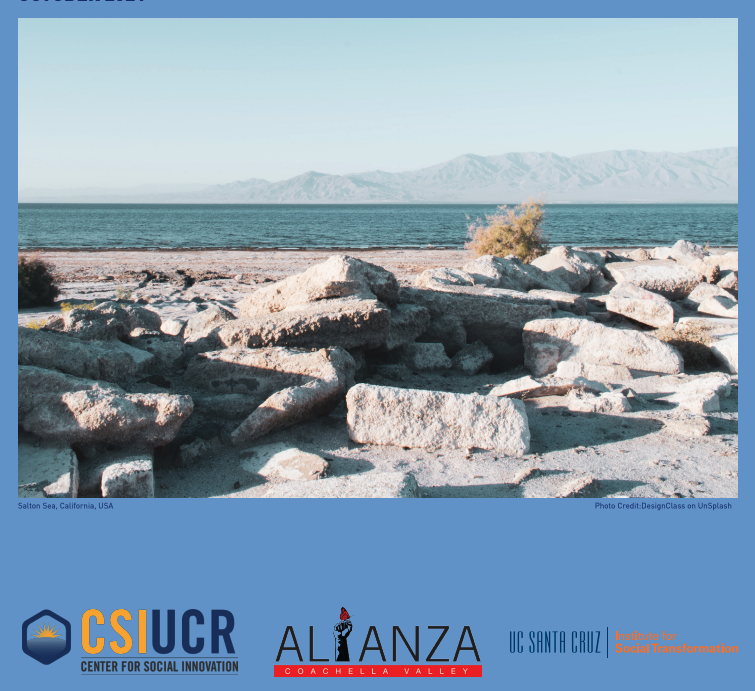
This policy brief provides guidance on frameworks and tools that can accelerate progress towards a more inclusive economic recovery. It is based, in part, on the first of three reports on inclusive economic development in the Salton Sea region of inland Southern California, authored by the University of California Santa Cruz Institute for Social Transformation. The Institute’s report, Salton Sea Initiative: Measuring and Developing Inclusive, Equitable and Sustainable Economies analyzes several frameworks related to building inclusive and sustainable economies, and proposes a framework and set of inclusive economy indicators for the Salton Sea region. This brief also draws on Chris Benner and Manuel Pastor’s forthcoming book, Solidarity Economics, which maps out the possibilities for a new model of economic development that has mutuality and interdependence at its core, as well as the Center for Social Innovation’s Ready to RISE framework, which was developed in partnership with community organizations and lays out a detailed and pragmatic set of indicators to track progress on resilience, inclusion, sustainability, equity.
Executive Summary
The COVID-19 pandemic has been devastating to communities across the United States, and especially so for historically marginalized populations and regions. While governments at all levels have tried various means to address these inequities, many of these reforms have proven limited in changing deeply entrenched systems.
A look at the history of economic development clearly shows the persistence of structural factors that have disadvantaged communities of color. During the Great Recession of 2008 and the gradual recovery that followed, low-income workers had virtually no cushion to serve as a buffer to economic dislocation. During the COVID-19 downturn and recovery, workers from communities of color were more likely to face health and mortality risks from providing essential services, living in crowded and precarious housing, experiencing food insecurity, and facing the risk of excessive police force.
The current recovery provides a fresh opportunity to build new infrastructure and reform existing economic and social programs by embedding community inclusion and equity as core values. Instead of reverting back to “business as usual,” we have a valuable opportunity to embed community inclusion from the very beginning—with agreement and buy-in from government and industry partners alike—rather than structuring community benefit through redistribution at the tail end of a series of plans. Not only has the latter strategy largely failed with respect to delivering on equity, it has also often meant poor design and investment choices that harm the long-term success of projects and programs.
The Biden Administration’s Build Back Better Regional Challenge (BBBRC) and California’s Community Economic Resilience Fund (CERF) are two examples of governments committing substantial sums of money to promote an inclusive economic recovery. As the intent and design of these initiatives indicate, inclusive economic recovery is more than simply making cash payments to households or allocating stimulus dollars to jurisdictions. It requires understanding the economic and social contexts that produce and support particular kinds of jobs and business enterprises, including the availability of affordable child care, housing, and transportation that enables residents to work in a sustainable and equitable manner.
Inclusive economic development also entails doing much better on community inclusion in decision-making. This means not only inviting in but also listening to, learning from, and respecting the perspectives of experts in local communities and local economies— including residents and workers who have firsthand knowledge of benefits as well as challenges, and barriers as well as solutions. Perhaps most fundamentally, inclusive recoveries are not simply the immediate result of bouncing-back from an economic crisis; they are the backbone of sustainable, resilient, and vibrant economies.
Because the Biden and Newsom administrations have backed their aspirations for inclusive and equitable recovery with new programs and grants, now is the time to act. Communities have an unprecedented opportunity to leverage these administrative priorities, and policymakers are presented with a prime opportunity to make good on their stated commitments to respecting and helping their communities. Community inclusion is also sound economic policy: communities of color have long been excluded from the proverbial table, and economic growth has suffered as a result. With a consumer base and labor force that continues to diversify, it is vital for regions to rapidly gain expertise in community inclusion in order to ensure their long-term economic success.
For additional resources, visit socialinnovation.ucr.edu/research
Report Citation:
Nate Edenhofer, Alejandro Artiga-Purcell, Chris Benner, Karthick Ramakrishnan, Gary Rettberg, Beth Tamayose, Sahara Huazano, Maria Paz, and Silvia Paz. 2021. “Our Salton Sea: Where Theory Meets Practice on Inclusive Economic Development.” Riversde, CA: Center for Social Innovation, UC Riverside.


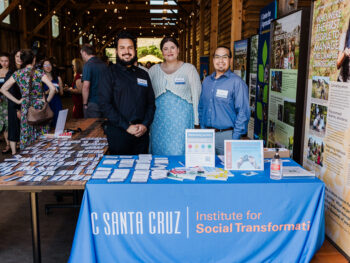
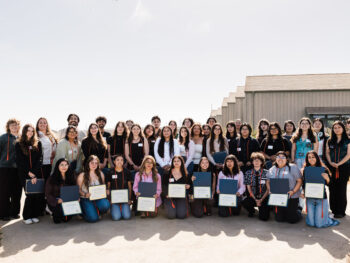
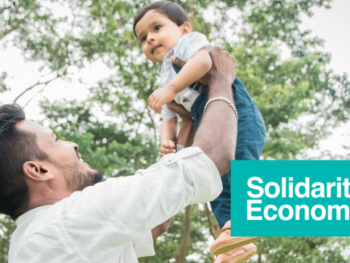
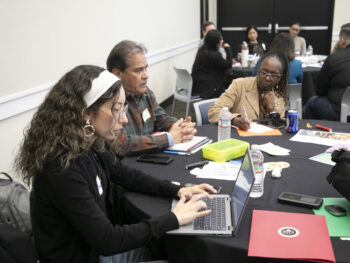
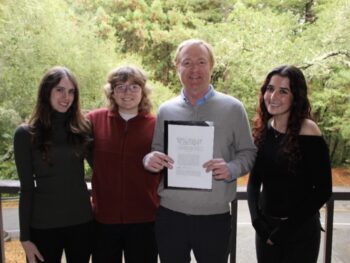
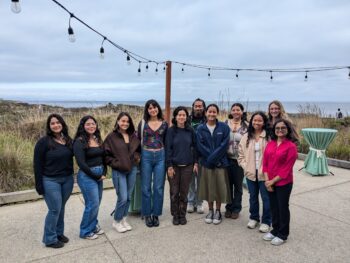
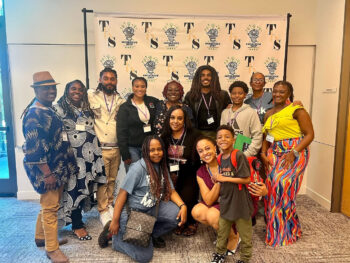
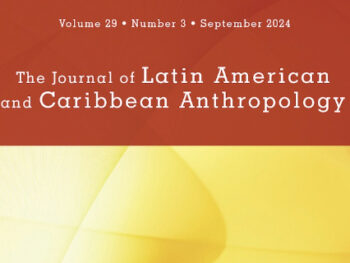
 Solidarity Economics: OUR Movement, OUR Economy
Solidarity Economics: OUR Movement, OUR Economy
